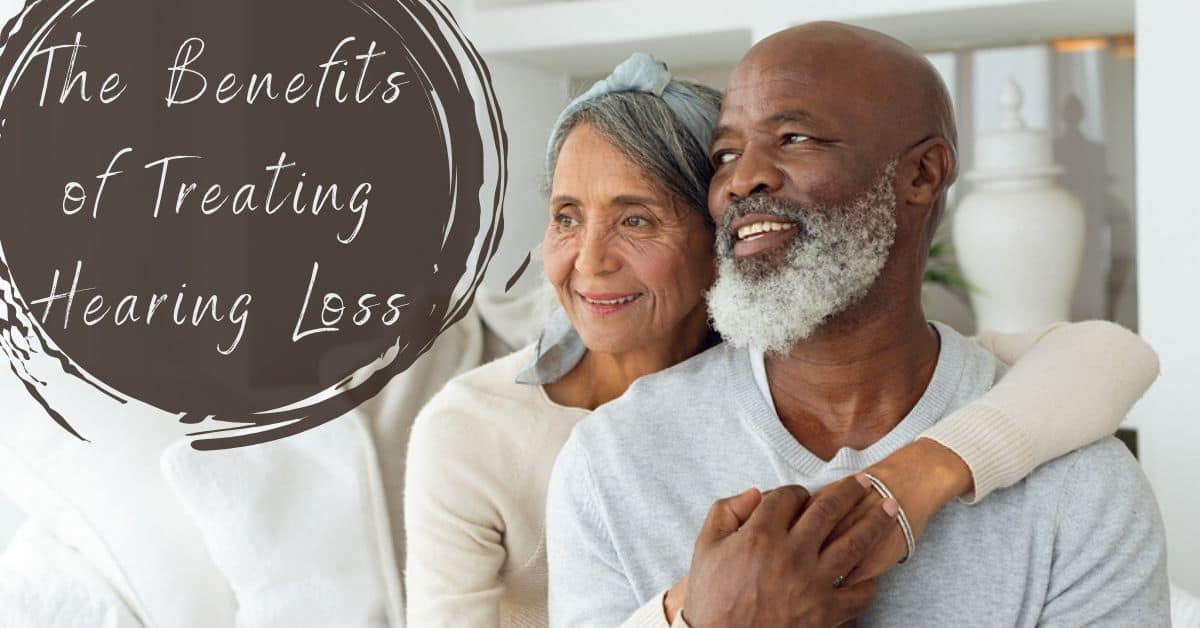- The Impact of Hearing Aids on Veterans’ Lives - February 15, 2024
- Hearing Health: A New Year’s Resolution for a Vibrant Life - January 16, 2024
- Unraveling Misconceptions About Hearing Loss - December 12, 2023
Have you been feeling like you’ve had to ask people to repeat themselves more than you would like recently? Have you found it harder to hear your loved ones over the phone or on a video chat? If this is the case there is a good chance you are dealing with the onset of hearing loss. When hearing loss goes untreated it can affect not only the quality of your hearing, but your emotional and physical health. The best treatment for hearing loss are hearing aids which amplify the sounds of the world and send them to your ears to make it easier for you to hear with your existing hearing. Often people are in denial about treating their hearing loss, thinking it is not bad or do not realize it is happening at all. Below are some major benefits to treating hearing loss that will make taking the leap to becoming a hearing aid user, an obvious choice.
Strengths strained relationships
When hearing starts to decay it is often easy to not be aware there is any loss at all. It is the subtle sounds that are the first to fade. Often it is certain pitches and consonants that are lost making speech hard to hear. This can begin to cause regular miscommunications and misunderstandings between the people you talk to the most, often your family and close friends. These small miscommunications can start to add up to major resentment between loved ones. Often subtle humor and conversation, which builds intimacy in relationships becomes increasingly sparse, eroding the quality of relationships. When people invest in hearing aids they will not struggle to hear as much creating more time to rebuild intimacy.
Improved social life
We are social creatures and when we strain to hear what others are saying it can be exhausting. It becomes more and more difficult to hear in crowded environments like restaurants and social gatherings. Often people with untreated hearing loss will opt to stay at home rather than engage in social situations. Many hearing aid models offer noise suppression features to make it easier to hear in crowded situations, improving communication and social life.
Improved cognitive health
Living with untreated hearing loss can be exhausting. When your brain has to strain to fill in the gaps lost in communication it is forced to take functions away from other cognitive aspects. Over time this can lead to cognitive impairment. Many studies link untreated hearing loss with higher risks for developing dementia.
Improved safety
Our ears help us keep us aware of the world around us. Subtle sounds of things moving around us help us map out space, like the sounds of a bike wheel approaching from behind or the jingle of a pet’s collar. When we cannot hear these sounds and have trouble deciphering the direction they are coming from we put ourselves at risk for more falls and more accidents. Hearing aids can reduce the instances of such mistakes by improving our hearing and hence our relation to what is happening around us.
Improved confidence
When people struggle to hear and participate in conversations they may feel a reduced sense of confidence. This can negatively affect relationships at home and even in professional settings. Perhaps you missed what was said at a big work meeting or over the phone. When you invest in hearing aids you no longer need to struggle to hear making many people able to be more confident. Not only that but impaired hearing can make it much more dangerous to drive a car or walk down the street. When you no longer have to worry about missing important audio clues on the road, like a turn signal left on, or a car horn honking you can drive with confidence and not put you or others at risk.
Improved psychological well being
Hearing loss can lead to depression, anxiety and isolation. These are dangerous conditions that can affect many aspects of your health including insomnia, headaches, muscle tension and high blood pressure. Don’t let hearing loss go untreated. Hearing loss affects 1 in 3 people over 65 but it can affect anyone at any age. The safest bet is to get your hearing tested annually and if a hearing loss is detected, invest in hearing aids as soon as possible.

